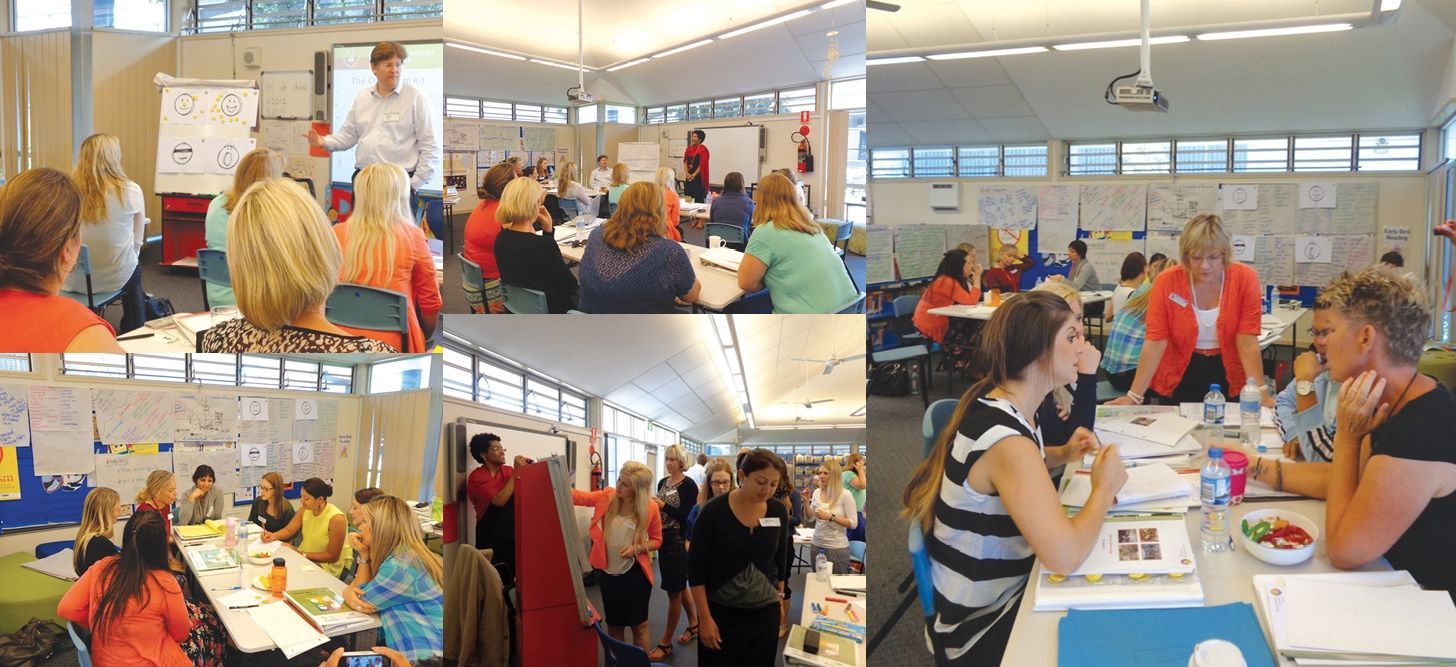A Swedish program devised in the 1970s to help adults deal with change is showing promise as an aid to schools wanting to address emotional issues and bullying.
Doorway to emotional wellbeing

The Four Rooms of Change Theory by Claes Janssen has only recently been introduced to Australia in the educational context.
Michael Victory of the non-profit and union owned Teacher Learning Network has been introducing the program to Victorian schools since 2010, and in 2012 the TLN partnered with NSW-based Mike Cook to introduce it to NSW.
Sacred Heart Primary School Cabramatta Principal Margaret Hogan is an early adopter. She began a trial at her school in 2012, and this year Years 3-6 will adopt the program.
“I had some boys who had anger management issues,” Margaret says.
“We had done some other programs but nothing seemed to be really helping.
“I had read a report that said anti-bullying programs weren’t making much of a difference, so when I was sent something from the Teacher Learning Network about Four Rooms of Change I went to the presentation.
“Four Rooms of Change is a very different approach. It doesn’t even mention bullying.”
Margaret says the trial across one or two grades in 2012 was successful so she organised training in December last year to introduce the program to every classroom this year.
IEU Professional Development Officer Amy Cotton attended the two-day training session at the school to discover more about it.
Margaret says: “It works because the students get to know what emotion they are feeling”.
In the adult version of Four Rooms of Change, four psychological states - confusion and conflict, self-censorship and denial, contentment, and inspiration and renewal - are represented graphically and people identify which room they are in or moving to.
At Sacred Heart, there will be a white board in each classroom and each student and teacher will have their own magnet. Every morning they will put their magnet on the board to show what room their emotions are in.
Mike Cook says the program is adapted for children to allow them to use their own words and language to describe their feelings.
“It doesn’t actually teach kids anything new, it’s a model that helps kids learn from their own experiences,” Mike says.
Margaret says a lot of preparation work is done with the students before they start using the magnets.
“Our students are often very language deprived. When something happens and they are emotional they could just say ‘mad’ or ‘sad’.
“We wanted them to be able to express their feelings more so we did lots of work building their vocabulary around emotions like jealousy, frustration and kindness.
“The good thing is the students move their magnets to show how they are feeling and it helps them recognise their own emotions and the emotions of others too, encouraging them to build empathy.
“We never had a huge bullying problem at this school, but there has been a noticeable change.
“I did a survey of students after the trial and they said it helped. They said they could see when someone wasn’t feeling good and try and cheer them up.
“I recently witnessed a dispute about handball with one of the boys who does have an anger management problem, so it didn’t stop his anger, but a group of other boys led him away from the situation and sat down him down and talked to him.”
Margaret says the program does not create too much extra work for teachers, as it links with the health curriculum regarding relationships, and is part of language and vocabulary learning.
“The feedback from the teachers in the trial is that it really helped with behaviour management because they could see how the children were feeling.”
Mike says: “There’s no rules about how you use it, but the fact you acknowledge their emotions is very important.
“It takes a lot of drama out of the classroom and allows kids to have a better experience of school.”
For more details on cost and availability, contact Michael Victory, Teacher Learning Network via mvictory@tln.org.au or (03) 9418 4992 or visit www.fourroomsofchangeinschools.com



































































































































